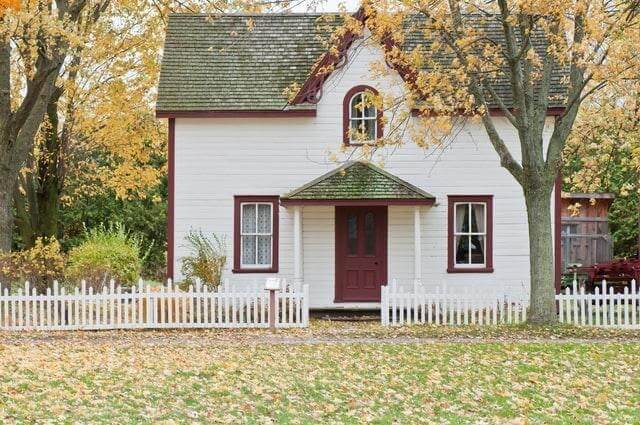For many, being a landlord is a highly coveted dream. The idea of earning extra income from a passive source is very attractive.
However, it’s important to note that being a landlord isn’t all smooth sailing. There may be a number of obstacles to overcome, including those that pop up out of nowhere. To ensure that owning a rental property doesn’t get the best of you, here are four tips for new landlords.Check out 7 more tips for new landlords
1. Make Sure the Numbers Work
If you want your rental income to be reliable, then you need to treat your property like a business. And when it comes to business, it’s critical you know your numbers.
Rental Rate
The price of rent is the single biggest determinant for how much profit you will make. If you set the rent too low, you may end up losing money on things like unexpected maintenance and repairs. You could also end up with lower-quality renters, who may prove to be more trouble than they are worth.
On the other hand, if you set your rent too high, you may have a hard time finding any renters at all! Rentometer is a great tool to help determine a realistic rental rate for your neighborhood.
Rental Expenses
Owning a rental property comes with expenses. Landlords who fail to account for these costs will be sorely disappointed by their profits.
When [[renting a property](https://www.ziprent.com/blog/articles/how-to-prepare-your-home-for-rent)]() out, expenses may include administrative costs, maintenance costs, taxes and even variable insurance costs. Avoid setting yourself up for failure by calculating all of these numbers prior to purchasing a property and setting your rental rate. That way, you will have a much more accurate view of the full financial picture.
2. Hire a Property Manager
A key decision for any landlord is whether or not to hire a property manager. Some may decide it’s better to go it alone and avoid the related fees. However, there are a number of benefits to hiring a property manager that may make the expense worth it.
Perhaps the most valuable purpose of hiring a property manager is the fact they can handle the difficult issues that can (and will) come up in a rental property. This includes things like maintenance, managing the relationship with tenants and even dealing with regulations or other municipal issues.
Another huge benefit of hiring a property manager is it allows you to scale. If you want to expand your real estate investment portfolio and grow your passive income stream, then you’ll likely need help.
While you may be able to handle the various aspects of one property, once you own several, the workload compounds. All of a sudden, you might need to fix something in six or seven units—and sooner rather than later. Having a property manager offloads those tasks to someone else.
Although you may want to skip the fees, hiring a property manager means owning 50 units will demand little more from you than when you owned just one. Delegating the day-to-day burdens frees up your time to focus on more important things, like acquiring more rentals.
3. Create Systems
In order to keep your rental business running smoothly, it’s vital that you create systems to streamline the entire process.
Rent Collection
Successfully collecting rent is key as a landlord. Create a process that is quick and easy to avoid headaches. Using an online payment system will allow tenants to remit payment however is most convenient for them and to set up recurring payments if they desire. Plus, you can send reminders and track the whole process so that you can stay on top of all your properties.
Ideally, you’ll want to ask for first and last month’s rent up front, as well as the security deposit. If a tenant can afford this amount prior to moving in, it’s a good sign that they are capable of paying rent regularly. Be sure to check your local landlord-tenant laws to determine what is legal to collect up front.
Tenant Relations
Set up clear channels and rules for communication to make landlord-tenant relations as stress-free as possible. Ideally, communication will go through a property manager. (The last thing you want is a 3 a.m. phone call about the toilet leaking.) Spell out in the lease exactly who the tenant can contact, how and when.
Record Keeping
Above all, you want to employ systems to track the goings on in your property (or properties). With so many moving parts—like rent, maintenance, taxes and fees—it can be easy to let something important slip by.
Don’t wait until you find yourself in trouble. Use a quality system to automate as much as possible, to track money coming in and going out and more. That way, nothing will sneak up on you.
4. Attract Amazing Tenants
Placing high-quality tenants in your rental property will make or break you as a landlord. Bad tenants can mean nonstop headaches: late rent, property damage, constant complaints or worse.
If you want great tenants, here are a few things you need to do. Design a great ad that includes professional photographs to show off the best aspects of your property. Ensure the property is in move-in ready condition—clean, odorless, freshly painted, so on. Finally, relay your contact information, clearly communicate the application process and be responsive.
The Bottom Line
Owning rental properties is often discussed as a means of generating passive income. Make no mistake… it’s work. There’s a lot that needs to be done right, and ample opportunities for missteps.
Being a landlord will certainly come with challenges. But if you take your time, do your research, network with experts and follow the tips in this guide, you’ll be well on your way to building wealth through real estate investment.

